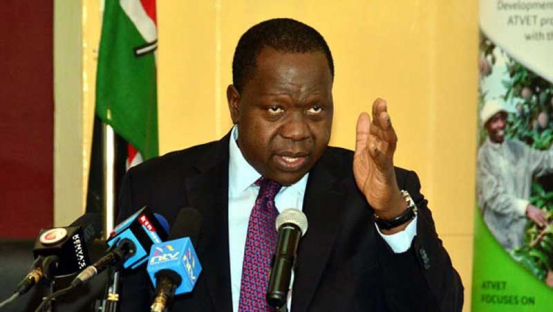
Acting Cabinet Secretary for Interior, Fred Matiang’i, has been abruptly thrown into the deep end of national security. And he has arrived screaming and threatening all and sundry, especially the Opposition. Dr Matiang’i will do well to realise he is swimming in uncharted waters.
The Education CS is dealing with a different and volatile constituency. He is not involved with the captive public school teachers and pupils whom he is used to ambushing, bullying and threatening with retribution. Nor is he dealing with Kenya Airports Authority sentinels, whom he can ask his transport counterpart to dismiss, for making him queue at airports. His guest constituents are unlikely to be moved by verbal fire and bluster.